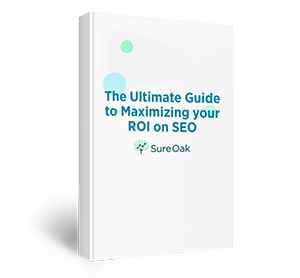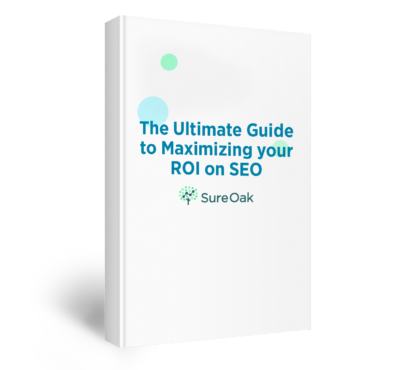As technology and search engine algorithms continue to evolve, so has the dynamic landscape of search engine optimization (SEO). One of the most significant changes in recent years has been the introduction of E-E-A-T, an acronym that stands for experience, expertise, authority, and trustworthiness. Google implemented E-E-A-T as part of its core ranking algorithm in 2022, and it continues to play a crucial role in determining a website’s visibility in the search results.
In this comprehensive guide, we’ll delve deep into what E-E-A-T is, why it’s important, how it will affect SEO in 2024, and what steps you can take to optimize your website’s E-E-A-T.
What Does E-E-A-T Mean?
So what does E-E-A-T stand for? Experience, expertise, authority, and trustworthiness. It’s a set of criteria that Google uses to assess the quality and credibility of web content and the websites that host it.
Introduced as part of Google’s efforts to improve search result quality and combat misinformation, E-E-A-T has become a fundamental component of the search engine’s ranking algorithm.
We’ll explore each of Google’s E-E-A-T principles in depth later on, but here’s a brief overview:
- Experience: This refers to real-life experience that the author of the content has with the subject matter.
- Expertise: Expertise covers whether the site owner and content creator have expertise on the topic they’re covering, which will be determined by credentials and industry recognition.
- Authority: Authority is about establishing the website as a trustworthy source of information within its niche or industry. It involves gaining recognition from peers, experts, and users as a reliable and credible source.
- Trustworthiness: Trustworthiness is closely tied to a website’s reputation. Factors like security, transparency, and user reviews play a significant role in determining a website’s trustworthiness.
Why Is E-E-A-T Important?
Understanding why E-E-A-T matters is essential for anyone involved in SEO. Google’s primary goal is to provide users with the most relevant and reliable information possible. By incorporating E-E-A-T into its ranking algorithm, Google aims to achieve this goal more effectively.
Thus, E-E-A-T is important for ensuring:
- Quality control: E-E-A-T helps Google maintain a high standard of content quality in its search results. This, in turn, enhances the user experience and keeps users coming back to Google as their preferred search engine.
- Reduced misinformation: With the rise of fake news and misleading content on the internet, E-E-A-T is Google’s way of combating misinformation. It ensures that trustworthy and accurate sources are prioritized in the search results.
- Competitive advantage: Websites that prioritize E-E-A-T have a competitive advantage in the digital landscape. They’re more likely to rank higher on the search engine results pages (SERPs) and attract more organic traffic.
- Positive reputation: This goes for both search engines and websites. Creating content with E-E-A-T in mind helps build your online reputation while promoting E-E-A-T content maintains Google’s reputation as a reliable search engine.
E-E-A-T and YMYL Websites
Not all websites are created equal, and not all industries have the same standards. Google tailors its evaluation criteria accordingly, especially for “Your Money or Your Life” (YMYL) websites. YMYL websites provide information or services that can significantly impact a user’s health, finances, or overall well-being. For YMYL websites, Google places a higher emphasis on E-E-A-T due to the potential consequences of misinformation or low-quality advice.
Here are some YMYL website examples and how E-E-A-T affects each type:
- Medical: For health-related websites, having content created or reviewed by medical professionals is crucial. Google looks for accurate, authoritative medical information provided by authors with medical credentials.
- Financial: In the financial niche, the products, services, and advice that websites offer can directly affect people’s lives. Thus, Google makes sure these websites are authored by financial experts, provide transparent information and disclosures, and are extra trustworthy and authoritative.
- Legal: Legal websites also focus on more sensitive matters, and they must showcase the credentials and expertise of their legal professionals.
- News: News websites are run through an even stricter set of E-E-A-T guidelines to be eligible to rank on Google News.
Helpful Content Update
In 2022, Google introduced a “helpful content update” for its ranking system, aiming to promote content that not only meets the E-E-A-T criteria but also provides valuable and helpful information.
The helpful content updates focus on identifying and rewarding websites that go the extra mile to comprehensively address users’ needs. Websites that provide in-depth guides, step-by-step instructions, and expert insights are more likely to benefit from this update.
To align with the helpful content updates, website owners and content creators should strive to create content that offers practical solutions and valuable information. This includes addressing common user queries and providing clear, actionable advice.
AI and Generative Content
Revolutionary AI-powered tools are providing substantial benefits across industries. However, website owners and content creators should take extreme caution when using AI-based content generation tools, particularly when it comes to safeguarding their SEO.
As part of the aforementioned helpful content update, Google prioritizes high-quality content created “by people, for people.” This means that obvious AI-generated content that doesn’t provide value to users can hinder rankings.
AI-generated content also often contains what’s known as “fluff,” or filler content that provides no value, which can cause a website to drop in the rankings. Furthermore, AI-created content is riddled with misinformation and inaccuracies, which is quickly flagged by Google.
What Does Google Say About E-E-A-T?
According to Google, E-E-A-T is part of the updated search quality rater guidelines that explain how content is ranked for helpfulness. Google states that E-E-A-T is an improved way of evaluating content, accounting for the complex ways that content can be deemed useful or valuable.
Understanding Google’s Guidelines
Google has explicitly stated that E-E-A-T is not a single, quantifiable metric. Instead, it’s a set of SEO guidelines that content creators should adhere to.
Under section 3.4 of its quality rater guidelines, Google states that the center of E-E-A-T is “trust,” with the other three principles informing it. The type and amount of trust required will depend on the page, with more trust being required for YMYL topics.
To determine whether a page is trustworthy, Google evaluates the E-E-A-T principles, depending on which are applicable. Factors that greatly affect a website’s E-E-A-T include “about us” pages, unbiased reviews, authoritative references, public comments, author biographies, and more.
E-E-A-T follows a complex set of guidelines that vary for specific niches and topics, but you can learn more about Google’s guidelines and examples on Google Search Central.
Understanding Experience, Expertise, Authority, and Trustworthiness
Each element of E-E-A-T plays a vital role in determining a website’s overall quality and credibility. Let’s dig into the components to understand their significance and impact on SEO.
Experience: What It Means for Websites
This extra “E” was added to the acronym in 2022. Though the user experience is a core element of SEO, in this context, the term refers to the firsthand experience that the author has with the content.
Google recognized that personal experience can be just as valuable to solving users’ search queries as, say, expert advice. Since firsthand experience can make content more helpful and reliable, it’s now used to assess the content’s trustworthiness.
Some ways that websites can demonstrate experience are by:
- Providing firsthand recounts and reviews of the subject matter
- Demonstrating proof of experience with photos or videos
- Offering public review posting, through which real customers leave reviews
This extra “E” means that posting content on matters that you don’t actually have any experience with can be harmful to your SEO credibility.
Expertise: The Role of Subject-Matter Knowledge
Expertise is particularly important for websites that provide information on specialized topics. Google assesses the expertise of both the individual content creator and the website as a whole.
Expertise is determined by these factors:
- Authorship: Clearly attributing content to knowledgeable and authoritative sources helps establish expertise. This may be done by listing relevant credentials in author biographies or on an “about us” page.
- Consistent and accurate information: Consistency and accuracy are key indicators of expertise. Providing well-researched, up-to-date information is crucial.
- Depth of content: In-depth content that thoroughly covers a topic demonstrates expertise, such as comprehensive guides and detailed explanations with citations.
- User engagement: High levels of user engagement, such as comments, shares, and backlinks, can indicate that your content is reliable and authoritative.
Authority: Building Trust and Reputation Online
Authority is the perception of your website as a go-to source of information within your niche or industry. Building authority takes time and effort, particularly in more competitive industries.
Here’s how to establish credibility in the context of SEO:
- Backlinks: High-quality backlinks from reputable websites are a strong signal of authority (e.g., a reference on an authoritative website like Bloomberg).
- Industry recognition: Being recognized by peers and experts in your field can bolster your authority by increasing your likelihood of receiving backlinks, web traffic, and user engagement.
- Consistency: Consistently producing valuable, authoritative content reinforces your reputation over time. Regularly updating and improving existing content to maintain its relevance can also help.
- User reviews and ratings: Positive user reviews and ratings can enhance your authority, especially for local businesses.
Trustworthiness: Gaining User Confidence
Trust is at the core of E-E-A-T, with the first three principles helping to inform a website’s overall trustworthiness. Trustworthiness is essential for boosting your SEO. Google values websites that are deemed to be trustworthy because they help demonstrate that users can also trust Google itself. Additionally, websites with higher user trust are more likely to be clicked on.
Some of the crucial factors that impact trustworthiness include:
- E-E-A: As mentioned, the experience, expertise, and authority of a website significantly affect its trustworthiness.
- Security measures: HTTPS websites that encrypt users’ data are deemed to be more trustworthy by Google and its users.
- Transparency: Being transparent about your intentions, affiliations, and potential conflicts of interest helps you build trust with users.
- Privacy policy: Listing a clear privacy policy while adhering to regulations like the General Data Protection Regulation (GDPR) demonstrates a commitment to user privacy.
- User testimonials: Showcasing positive user reviews and testimonials also helps establish trust with potential customers or clients.
- Contact information: Providing easily accessible contact information, including a physical address and phone number, reassures users of your legitimacy.
How Does E-E-A-T Impact SEO and Ranking Signals?
E-E-A-T plays a significant role in determining where your website ranks in the search results. Websites that score high in experience, expertise, authority, and trustworthiness are more likely to appear at the top of the SERPs. This can result in increased organic traffic and greater visibility for your content.
Positive E-E-A-T signals also often lead to higher user engagement metrics. When users trust your website as a valuable source of information, they’re more likely to spend time exploring your content, interacting with it, and sharing it with others. This, in turn, helps improve your SEO performance.
Furthermore, well-researched, expertly written, and authoritative articles are more likely to be included as “featured snippets” or in the “People Also Ask” section, increasing their visibility and attracting more organic traffic.
Examples of Good and Bad E-E-A-T
To illustrate the concept of E-E-A-T in practice, let’s look at some examples of websites exhibiting either good or bad E-E-A-T.
Bad E-E-A-T
Some examples of bad E-E-A-T include:
- Medical advice from unqualified sources: Websites offering medical advice without proper credentials or references can be dangerous and directly impact people’s lives, so they rank low on the E-E-A-T scale.
- Unsecured e-commerce sites: Online stores that don’t use secure connections (HTTPS) and lack clear contact information may be flagged as untrustworthy by Google.
- Spammy affiliate sites: Websites that exist solely to promote affiliate products without providing valuable information or expertise lack credibility and often have low-quality content.
Good E-E-A-T
Conversely, some examples of good E-E-A-T websites include:
- Educational institutions: The websites of universities and reputable educational institutions typically have high E-E-A-T. They offer expert content, clear credentials, and a strong reputation.
- Medical journals: Websites that host peer-reviewed medical journals are considered authoritative sources for medical information. They provide in-depth expertise and trustworthiness.
- Well-known news organizations: Established news outlets also typically have high E-E-A-T. They tend to have authority, credibility, and a history of providing reliable, up-to-date information that’s backed up by verified sources.
Tips for Boosting Your Website’s E-E-A-T
Now that we’ve gone over the importance of E-E-A-T and its significance for Google, let’s explore some practical steps you can take to enhance your website’s E-E-A-T and improve your SEO rankings.
1. Offer Valuable Content
Creating high-quality, informative, and engaging content is essential for demonstrating your expertise and authority. Google prioritizes content that’s original, helpful, and made by people, for people.
Here’s how you can create valuable, relevant content:
- In-depth research: Thoroughly research your topic and provide well-documented information. Use credible sources to support your content.
- Alignment with user intent: Make sure your content aligns with the intent behind users’ search queries. When the content answers users’ questions, they’re more likely to stay on your page, indicating to Google that your content is valuable.
- Originality: Aim for original content that offers a unique perspective or solution to common problems in your niche.
- Regular updates: Keep your content up to date to ensure its accuracy and relevance over time.
2. Gain Reputable Backlinks
Backlinks from authoritative websites are a significant factor in building your website’s E-E-A-T. Google recognizes references to your site from other reputable sites, contributing to a positive E-E-A-T evaluation.
To gain reputable backlinks that add E-E-A-T value to your site, try the following:
- Outreach and guest posting: Reach out to relevant websites and offer to contribute guest posts or collaborate on content projects, which can be mutually beneficial.
- Build relationships: Build relationships with influencers and experts in your field. Their endorsements and references can lead to valuable backlinks.
- Monitor your backlink profile: Regularly audit your backlinks to identify broken or irrelevant links to your site.
3. Cite Your Expertise
Positioning yourself as an expert in your industry is key to leveraging Google’s algorithm. Demonstrate expertise in your niche through:
- “About us” page: Include a detailed “about us” page for the website or company. Outline credentials, experience, and any other relevant information that demonstrates your authority.
- Author biographies: Include author biographies for content written by industry experts. Include their education, credentials, and headshot to show that they’re verifiable experts.
- Expert checks: If your content is not written by an expert, provide a verified expert review by a professional in the field.
- Citing your sources: Listing credible sources along with your content shows both users and Google that your information is accurate.
4. Include Legal Disclosures
Particularly for YMYL websites, it’s crucial to include appropriate legal disclosures and disclaimers. These disclosures can help build trust with users and signal your commitment to transparency. Some examples include:
- Disclaimer pages: Create dedicated pages that outline your website’s policies and disclaimers regarding the information or services provided.
- Terms of service: Clearly state your website’s terms of service, especially if users can interact or transact on your site.
- Privacy policy: Clearly indicate your website’s privacy policy and how it protects users’ data.
5. Enable Customer Reviews and User Comments
Enabling public, unbiased reviews by real customers and clients indicates trust in Google’s algorithms. It also helps promote trust with new users, which in turn increases their activity and boosts your SEO. Additionally, user comments can inform Google whether your content is useful or demonstrates knowledge.
Get the Most Out of E-E-A-T
E-E-A-T is a pivotal factor in SEO, and its significance will continue to grow in 2024. By prioritizing experience, expertise, authority, and trustworthiness, you can ensure that your website not only ranks well in the search results but also provides valuable, trustworthy information to your audience.
Enhancing your website’s E-E-A-T is an ongoing process that requires dedication and expertise. At Sure Oak, we specialize in helping businesses improve their E-E-A-T and overall SEO strategy. Our team of experts can assist you in achieving higher rankings, enhanced click-through rates, and more conversions.
Contact us today to start optimizing your E-E-A-T for SEO success in 2024 and beyond.





